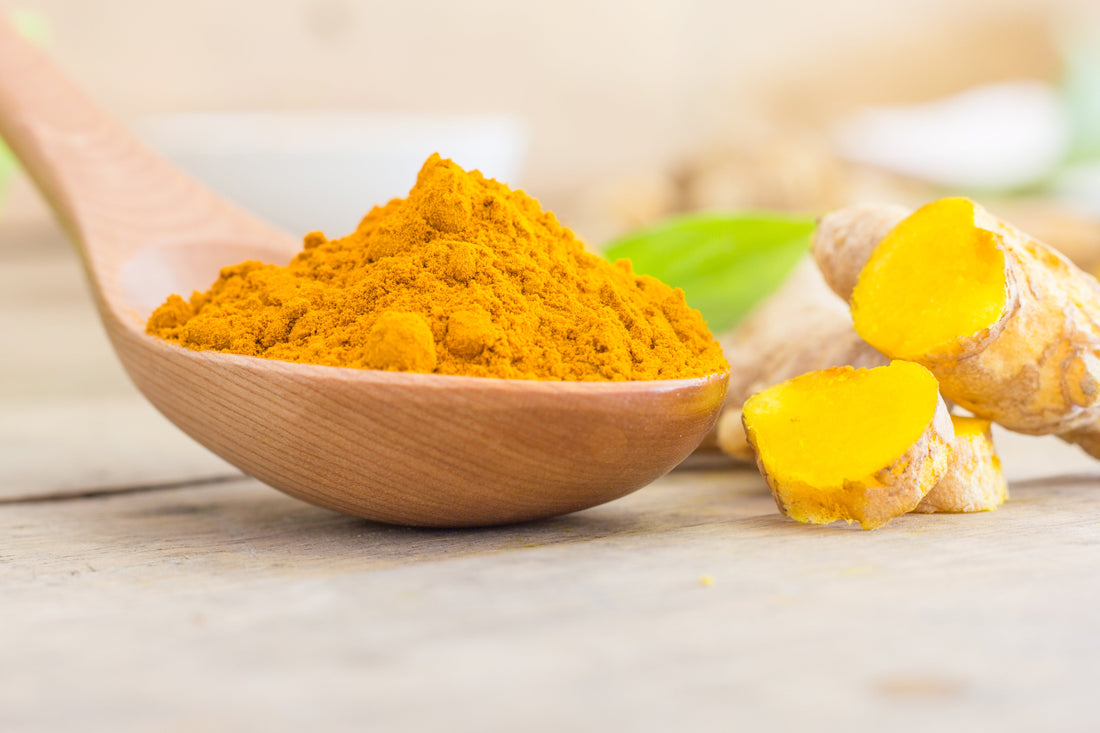Indian mothers have probably chased their kids down, wanting them to try her special all-in-one homemade skincare paste. Those magical pastes most likely would have had turmeric in them.
This vibrant yellow spice is a staple across most kitchens in the world. But this humble superfood is not just limited to its culinary uses.
Read on to find out more about the benefits of turmeric.
Turmeric in the Past
From our great-grandmothers to our mothers, turmeric has been a part of our daily lives for over a hundred years. This golden-orange spice is commonly used in its dried and powdered form for culinary and medicinal purposes.
Celebrated for its healing properties, turmeric was extensively used in ancient Indian medical practices like Ayurveda and Siddha while holding a place in the Hindu religion, where it is sacred in poojas and on special occasions like weddings.
The spread of turmeric began with the traders along the Silk Route around 700 AD, who introduced this spice to the Middle East and North Africa. The earthy and slightly bitter flavor of turmeric has led to its inclusion in the Middle East and Southeast Asian cuisines.
This legacy of turmeric has persisted and we all have whipped up one or more homemade remedies involving turmeric at least once.
Benefits of Turmeric for the Skin
Turmeric contains the active ingredient (polyphenol) curcumin, known for its anti-inflammatory, antibacterial, antioxidant, hypoglycemic, wound-healing, and antimicrobial properties.
Since traditional times, women have used turmeric to brighten their skin, fade acne marks, and even reduce facial hair growth.
Here are some of the ways turmeric can benefit your skin.
-
Makes your skin glow
For centuries women have used turmeric as a skin brightening agent. This humble spice brings a natural glow to your complexion, brightening your skin. -
Reduces your acne scars
Turmeric has been proven to reduce blemishes on the skin. Its anti-inflammatory properties act on the pores and help calm the skin, reducing scarring. -
Slows your hair growth
The natural chemicals in turmeric help weaken the hair roots and inhibit hair growth. You can use it on your face, legs, or anywhere else.
- Helps treat your acne
This mighty spice with its antibacterial properties inhibits the bacterial growth that leads to acne and calms the skin. Turmeric also reduces the swelling and redness around the pimple - Helps reduce your dark circle
These bags under your eyes can be caused by several reasons ranging from lack of sleep, and exhaustion, to even being hereditary. Whatever the cause may be, turmeric might help you brighten your under-eyes. -
Calms sensitive skin
If you’re someone with sensitive skin and wondering if turmeric is the right choice for you, then it is. The soothing properties of turmeric calm irritated skin and give a soothing effect to your skin.
- Moisturizes your skin
If you have dry and flaky skin, adding turmeric to your skincare will help hydrate your skin and even get rid of dead skin. Women around the world have used turmeric for centuries as part of their winter skincare routine. - It helps your psoriasis
Studies have found that turmeric’s anti-inflammatory and antioxidant properties help suppress inflammation and soothe the skin. The curcumin and other curcuminoids in turmeric help relieve oxidative stress on the skin. - It can heal small wounds
Turmeric has been proven to heal small cuts on the skin by reducing inflammation and oxidation. -
It can help treat scabies
Scabies is a skin disease caused by small itch mites that cause itching and small raised red spots. With its antibacterial and anti-inflammatory properties, turmeric can help calm scabies.
Benefits of Turmeric for your Health
Besides being a popular skincare ingredient, turmeric is a very popular spice in various cuisines and is used as medicine. The many benefits of turmeric are attributed to the presence of curcumin, known for its strong antioxidant and anti-inflammatory properties.
Here is how adding turmeric to your diet can positively impact your body.
- The anti-inflammatory properties of turmeric and curcumin help manage the inflammation in your body.
- Curcumin in turmeric is fat-soluble and helps dissolve high-fat foods.
- The curcumin in turmeric can improve memory and attention by increasing the level of BDNF (brain-derived neurotrophic factor). Decreased levels of BDNF have been linked to brain disorders like depression and Alzheimer's disease.
- Turmeric in your diet can reduce your risk of heart disease. The curcumin in turmeric promotes the function of endothelium like regulating blood pressure, blood clotting, and more.
- Curcumin is proven to reduce inflammation and reduce the pain of arthritis.
- Turmeric can be used as an anti-aging agent. The antioxidant and anti-inflammation properties of curcumin delay aging and fight age-related disorders.
The Bottom Line
This miracle spice is a must-have in your diet and skincare routine. But just like all good things take time, the effects of turmeric are not instantaneous. The brilliant effects of turmeric would reflect in your body only with continued use.
Also, it is important to note that you consult with your GP or your dermatologist to decide if the regular use of turmeric is good for you.


